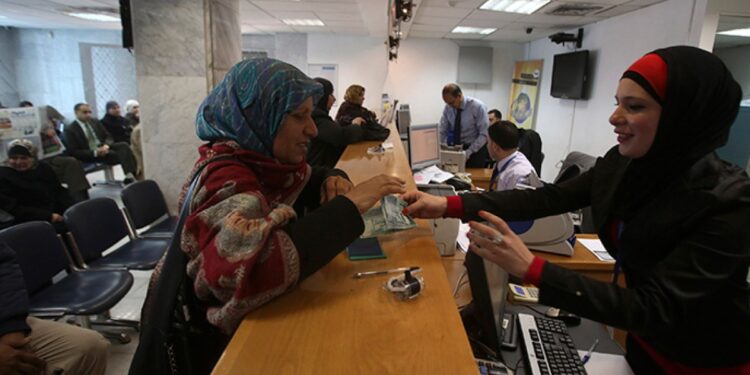The West Bank faces a unique financial challenge in the form of a cash surplus that currently stands at about 4.2 billion shekels (more than $1 billion), posing major problems for local lenders, according to the Financial Times.
The cash surplus represents the liquid cash amounts available to the financial system after paying all its obligations.
The problem emerged after Israel suspended receiving the surplus shekels accumulated in banks over the past few months without giving any reasons.
The shekel surplus in the West Bank occurs in particular due to purchases by Palestinians inside the West Bank, wages of Palestinian workers inside the West Bank, and some financial transfers for trade purposes.
The Monetary Authority said that one of the reasons for the recent surplus is the increasing demand from citizens, companies and merchants to deposit their Israeli currency following the Israeli side’s threats to sever banking relations with Palestinian banks.
She added, “This has caused paper currency to pile up in bank vaults beyond their capacity.”
According to the newspaper, this problem is expected to worsen, as expectations indicate that the surplus may reach 8 billion shekels ($2.15 billion) by the end of the year, which represents more than 15% of the West Bank’s GDP.
Bank Profits and Security Risks
The newspaper points out that idle money is not just a logistical headache, but also represents financial and security risks, as banks’ profits are damaged because they are unable to lend or deposit.
The IMF estimates that keeping excess cash in shekels has reduced Palestinian banks’ profits by about 20%, equivalent to $500 million in lost profits from 2012 to 2023.
“We cannot deposit it to earn interest, and we cannot lend it, because we are not lending cash. This money can be put into the economy, circulated and produced value,” a Palestinian banker told the newspaper.
Israeli restrictions
The surplus stems from a cap imposed by the Bank of Israel on the amount of cash that West Bank institutions can transfer to it.
This cap, set at NIS 18 billion ($4.9 billion) annually, has been heavily criticized as being inconsistent with shekel inflows into the Palestinian banking system.
“We see no evidence of money laundering through the West Bank that would require strict restrictions on the excess shekel,” a Palestinian diplomat told the newspaper.
The International Monetary Fund also criticized this cap, noting that it is not proportional to actual flows.
The Bank of Israel defends this cap on the grounds that it “reflects proportionate shares of legitimate economic activity,” as it puts it.
Despite this, the newspaper says, Israeli restrictions remain a major burden on lenders in the West Bank.
Economic impact
The ongoing war on the Gaza Strip and the resulting restrictions have exacerbated the cash surplus, and Israel’s ban on Palestinian workers entering its territory since the start of the war has also limited the flow of liquid shekels.
Palestinians who commute to Israel for work bring up to NIS 20 billion to the West Bank annually, while Israeli Palestinians who shop in the West Bank contribute another NIS 6 billion to 7 billion.
Since the outbreak of the war, the surplus has been exacerbated by increased deposits from Palestinians who previously kept cash in their homes and now feel safer keeping it in banks.
The economic recession caused by the war also led to a decline in spending, which increased the amount of idle money.
Measures to mitigate the problem
To address cash flow, Palestinian banks have charged customers fees on deposits and sometimes refused to accept shekel deposits due to storage restrictions, the newspaper reported.
The Bank of Israel has sometimes allowed early allocations of deposit quotas to ease the pressure, and one Palestinian banker told the newspaper, “Sometimes we had to take out short-term loans to cover transfers and checks even though we had 10 times that amount in our coffers.”



